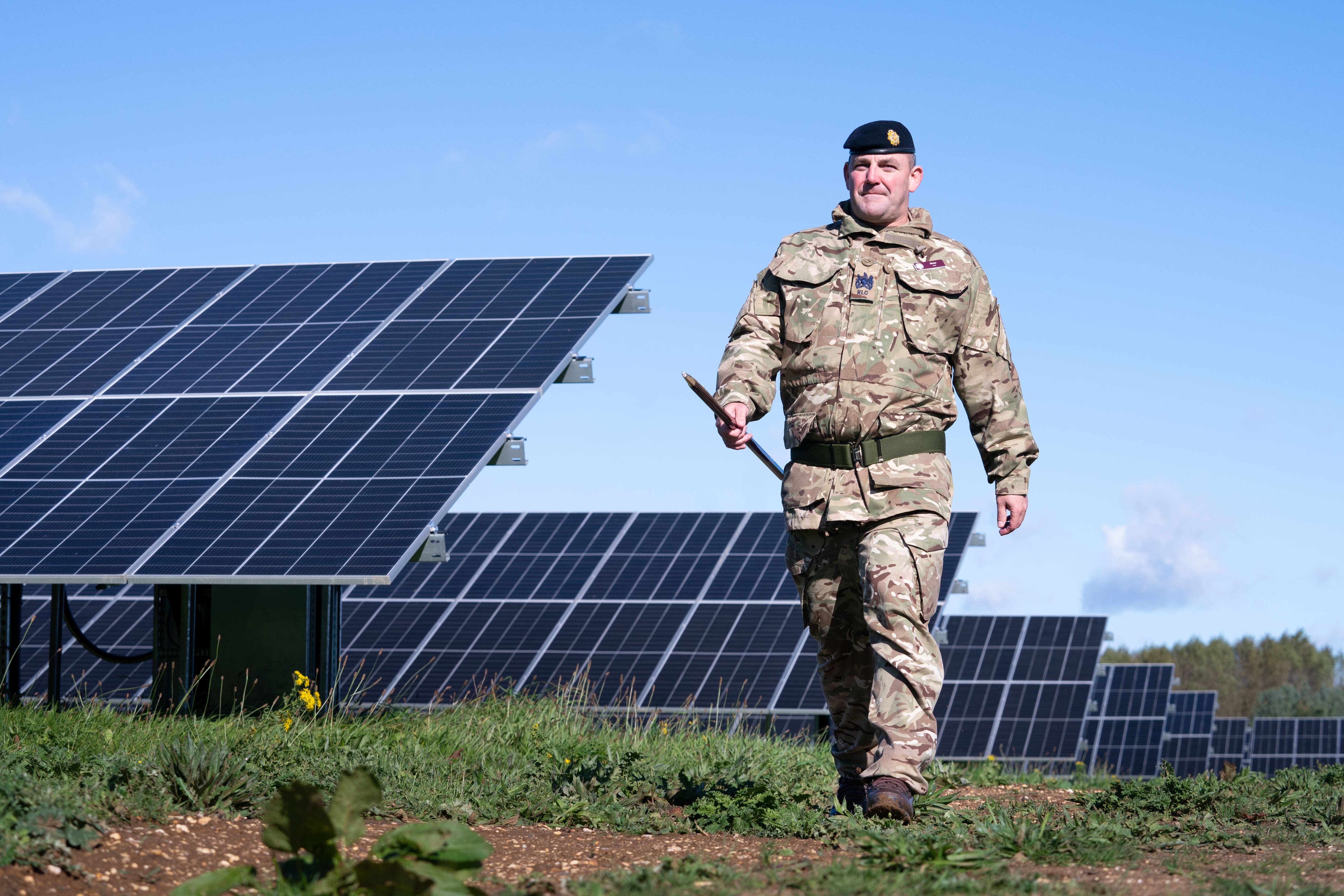Shrinking size of UK armed forces raises fears over ability to fight
It comes amid warnings that the threat to Britain from hostile states is the highest since the Cold War

The size of the UK’s army has shrunk to fewer than 76,000 soldiers, latest figures show - as one European Nato general reportedly said the country can no longer “put a brigade in the field”.
Data shows that in the 12 months to September the army’s total strength fell from 79,139 to 75,983 - at this downward trajectory there could be fewer than 70,000 regular soldiers within two years.
It comes amid militarily uncertainty in western Europe with Russian aggression continuing to raise alarm in countries like Sweden.
The UK army has faced growing recruitment challenges, but is focused on bolstering hiring and improving retention – and last summer laid out pay increases for personnel.
And the fall in numbers has reportedly been noticed. The Times reports that one European Nato general told him in September last year that the UK “can’t put a brigade in the field” and has “kit [that is] falling apart”.
Also writing for the newspaper, General Lord Dannatt hit out at the shrinking size of the army, which he said has fallen from 102,000 in 2006 to 74,000 today “and falling fast”.
Writing in The Times, he drew parallels with the 1930s when the “woeful” state of the UK’s armed forces failed to deter Hitler.
“There is a serious danger of history repeating itself,” he said.
Pointing to rising geopolitical uncertainty, he said: “If our armed forces are not strong enough to deter future aggression from Moscow or Beijing it will not be a small war to contend with but a major one.”
Under Government proposals, the size of the regular army will be cut from a commitment of 82,000 troops to 73,000 by 2025.
Lord Dannatt said pay and conditions should be “urgently reviewed” and “a pay rise to attract recruits and to retain current trained personnel should be a priority, as should addressing the appalling quality of some armed forces accommodation”.
Noting a lack of investment in equipment and infrastructure, The Times quoted an unnamed former senior US general as saying the UK was seen as “having diminished capabilities over the past couple of decades”.
“Hence, while being the most important ally across the board, it is decidedly not what it used to be, regrettably.”
It comes as counter-terrorism police warned Britain faces its most “acute threat” of hostile foreign interference and spying since the Cold War because of the “triple threat” of Russia, China and Iran.
Metropolitan Police Assistant Commissioner Matt Jukes told the PA news agency: “I think the whole environment is very different, probably the most acute picture of threat around espionage and foreign interference, these state threats, the most acute threat since the Cold War.”
And Defence SecretaryGrant Shapps said he did not wish to be “alarmist” when he warned that it was not “inevitable” hostile nations could be kept at bay.
He told The Telegraph on Friday: “It is vital that we continue to lead, deter hostile states and act to defend our country whenever and wherever we need.
“But I would also say that nothing is inevitable. We can deter such threats by being prepared and standing strong with our allies. That is why we are investing in our Armed Forces and our allies.
“This is not about being alarmist. It’s about being ready and being in the right place to defend our interests.”
Also on Friday, the German defence minister said Russia could attack Nato within five years.
Boris Pistorius told German news outlet Der Tagesspiegel: “We hear threats from the Kremlin almost every day, so we have to take into account that [Russian President] Vladimir Putin, might even attack a Nato country one day.”
Some 20,000 UK service personnel will take part in Exercise Steadfast Defender across Europe, one the alliance’s biggest exercises since the Cold War.
A Ministry of Defence spokesperson said: “British Army tanks are currently operating in Europe defending the UK and its allies, while later this year 20,000 UK sailors, soldiers and aviators will serve on Nato manoeuvres in Europe.
“In the Middle East, the Royal Navy has destroyed drones threatening shipping and freedom of navigation in the Red Sea and the Royal Air Force has weakened the Houthi rebels in Yemen.
“Whilst there are undoubted challenges to military recruitment, people are at the heart of the military and the MoD is taking tangible and concrete steps to address shortfalls. More widely the UK is spending more than £50 billion on Defence this year to protect our interests wherever they are threatened.”
Bookmark popover
Removed from bookmarks